Filter by
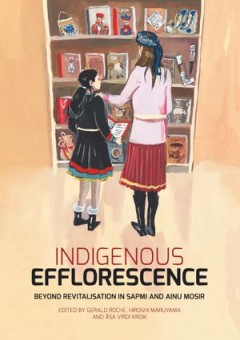
Indigenous Efflorescence: Beyond Revitalisation in Sapmi and Ainu Mosir
Indigenous efflorescence refers to the surprising economic prosperity, demographic increase and cultural renaissance currently found amongst many Indigenous communities around the world. This book moves beyond a more familiar focus on ‘revitalisation’ to situate these developments within their broader political and economic contexts. The materials in this volume also examine the everyday pr…
- Edition
- -
- ISBN/ISSN
- 9781760462628
- Collation
- -
- Series Title
- -
- Call Number
- 301 IND i
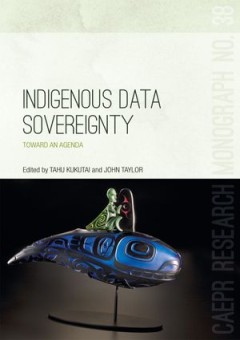
Indigenous Data Sovereignty: Toward an agenda
As the global ‘data revolution’ accelerates, how can the data rights and interests of indigenous peoples be secured? Premised on the United Nations Declaration on the Rights of Indigenous Peoples, this book argues that indigenous peoples have inherent and inalienable rights relating to the collection, ownership and application of data about them, and about their lifeways and territories. As…
- Edition
- -
- ISBN/ISSN
- 9781760460303
- Collation
- -
- Series Title
- -
- Call Number
- 300 IND i
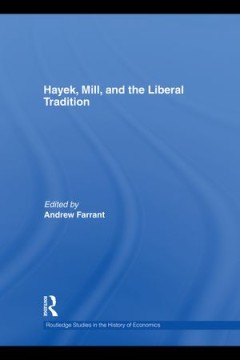
Hayek, Mill and the Liberal Tradition
This book considers the relationship between Hayek and Mill, taking issues with Hayek’s criticism of Mill and providing a broader perspective of the liberal tradition. Featuring contributions from the likes of Ross Emmett, Leon Montes and Robert Garnett, these chapters ask whether Hayek had an accurate reading of the ideas of Mill and Smith, as well as considering themes such as sympathy and …
- Edition
- -
- ISBN/ISSN
- 9780415779340
- Collation
- -
- Series Title
- -
- Call Number
- 650
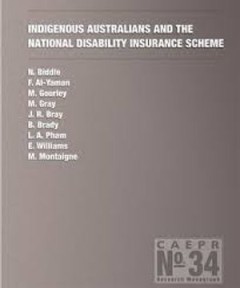
Indigenous Australians and the National Disability Insurance Scheme
The National Disability Insurance Scheme (NDIS) is one of the major policy innovations of the early 21st century in Australia, representing a new way of delivering services to people with a disability and those who care for them. It has the potential to transform the lives of hundreds of thousands of people, giving them greater certainty and control over their lives. There is a higher incidence…
- Edition
- -
- ISBN/ISSN
- 9781925021899
- Collation
- -
- Series Title
- -
- Call Number
- 362.4 IND i
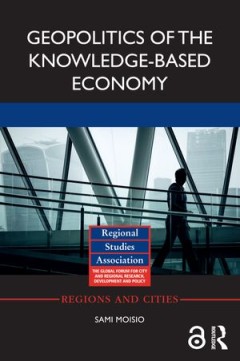
Geopolitics of the Knowledge-Based Economy
We live in the era of the knowledge-based economy, and this has major implications for the ways in which states, cities and even supranational political units are spatially planned, governed and developed. In this book, Sami Moisio delves deeply into the links between the knowledge-based economy and geopolitics, examining a wide range of themes, including city geopolitics and the university as …
- Edition
- -
- ISBN/ISSN
- 9781317587767
- Collation
- -
- Series Title
- -
- Call Number
- 650
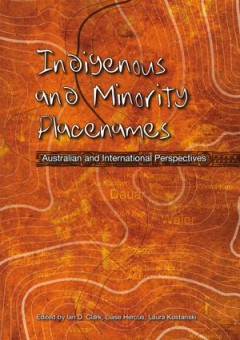
Indigenous and Minority Placenames: Australian and International Perspectives
This book showcases current research into Indigenous and minority placenames in Australia and internationally. Many of the chapters in this volume originated as papers at a Trends in Toponymy conference hosted by the University of Ballarat in 2007 that featured Australian and international speakers. The chapters in this volume provide insight into the quality of toponymic research that is being…
- Edition
- -
- ISBN/ISSN
- 9781925021639
- Collation
- -
- Series Title
- -
- Call Number
- 301 IND i
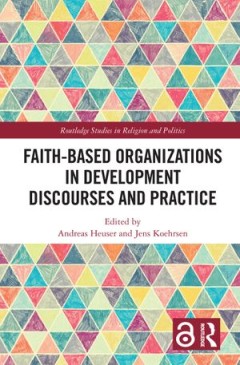
Faith-Based Organizations in Development Discourses and Practice
Exploring faith-based organizations (FBOs) in current developmental discourses and practice, this book presents a selection of empirical in-depth case-studies of Christian FBOs and assesses the vital role credited to FBOs in current discourses on development.Examining the engagement of FBOs with contemporary politics of development, the contributions stress the agency of FBOs in diverse context…
- Edition
- -
- ISBN/ISSN
- 9781000734249
- Collation
- -
- Series Title
- -
- Call Number
- 650
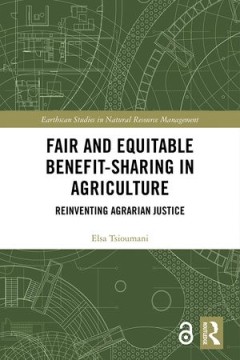
Fair and Equitable Benefit-Sharing in Agriculture (Open Access) : Reinventing…
This book explores the emergence and development of the legal concept of fair and equitable benefit-sharing, and its application in agriculture.Developed in the 1990s, the concept of fair and equitable benefit-sharing has been deployed in an ever-wider variety of international instruments, including those on biodiversity, climate change and human rights. A lack of clarity persists, however, on …
- Edition
- -
- ISBN/ISSN
- 9780429584183,
- Collation
- -
- Series Title
- -
- Call Number
- 650
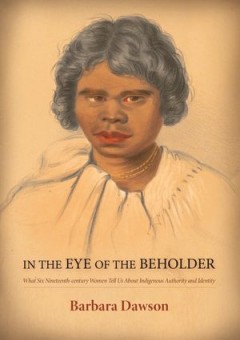
In the Eye of the Beholder: What Six Nineteenth-century Women Tell Us About I…
This book offers a fresh perspective in the debate on settler perceptions of Indigenous Australians. It draws together a suite of little known colonial women (apart from Eliza Fraser) and investigates their writings for what they reveal about their attitudes to, views on and beliefs about Aboriginal people, as presented in their published works. The way that reader expectations and publishers�…
- Edition
- -
- ISBN/ISSN
- 9781925021974
- Collation
- -
- Series Title
- -
- Call Number
- 301 DAW i
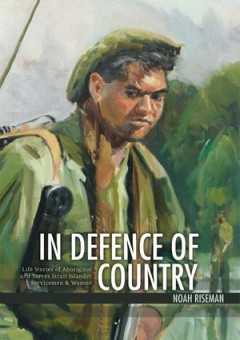
In Defence of Country: Life Stories of Aboriginal and Torres Strait Islander …
Aboriginal and Torres Strait Islander people have been protecting country since time immemorial. One way they have continued these traditions in recent times is through service in the Australian military, both overseas and within Australia. In Defence of Country presents a selection of life stories of Aboriginal and Torres Strait Islander ex-servicemen and women who served in the Australian Arm…
- Edition
- -
- ISBN/ISSN
- 9781925022803
- Collation
- -
- Series Title
- -
- Call Number
- 301 RIS d
 Computer Science, Information & General Works
Computer Science, Information & General Works  Philosophy & Psychology
Philosophy & Psychology  Religion
Religion  Social Sciences
Social Sciences  Language
Language  Pure Science
Pure Science  Applied Sciences
Applied Sciences  Art & Recreation
Art & Recreation  Literature
Literature  History & Geography
History & Geography